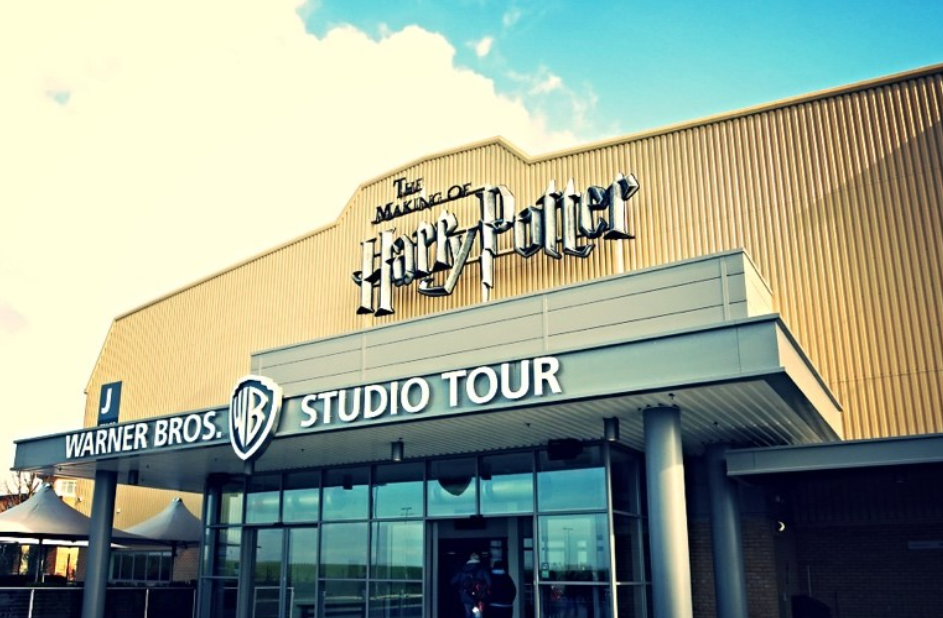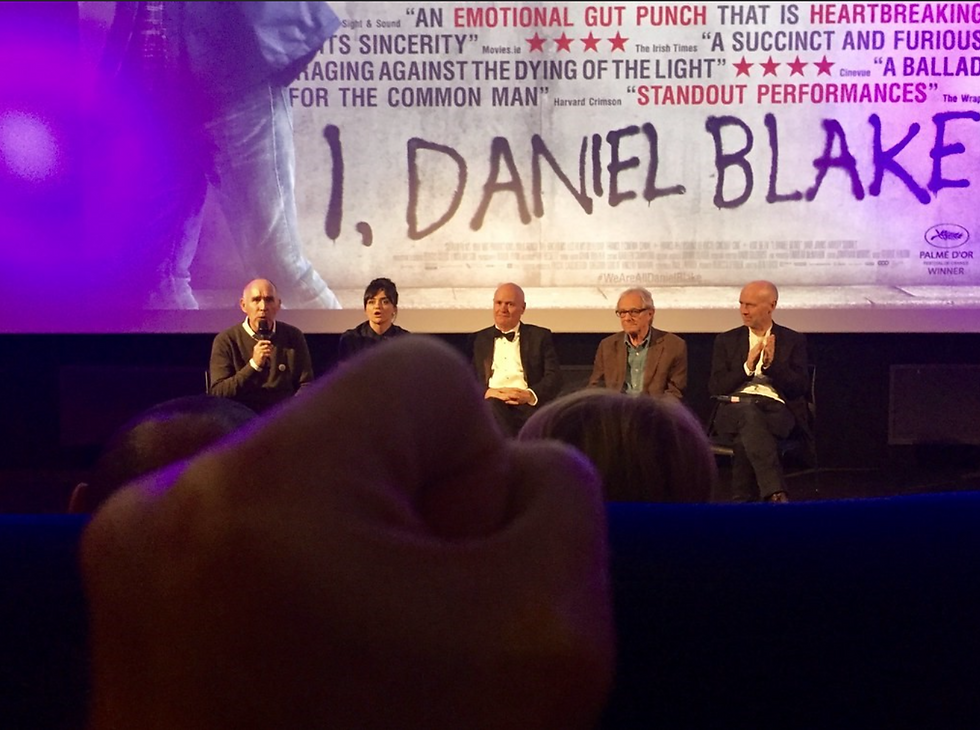
Theo Reilly
2 Feb 2025
Does UK Film and TV have any sovereignty?
The UK’s film and television industry is one of the world’s richest in cultural value. Harry Potter, Doctor Who, Wallace and Gromit, and Game of Thrones, only to name a few of our globally popular media icons. But what if none of these examples were actually owned by the UK? Sovereignty is usually a word associated with global politics, not entertainment. But with Harry Potter making its TV comeback next year, twenty-seven years since Warner Bros. bought the rights, it’s being handed over to another American company (HBO) for television distribution. We’re asking why almost all of Britain’s media staples are either owned by US studios, or distributed by them.
The BFI’s latest Box Office Statistics, released 7th November, found that Disney’s Deadpool & Wolverine was last year’s top grossing UK qualifying production. What makes this film British? It was filmed in Pinewood. They separate a UK independent production as “produced without creative or financial input from the major US studio companies”, and found that none of these reached the top 10 highest earning films in the UK. Out of the 10 highest earning UK independent productions, 8 were distributed by US companies.
Rebecca O’Brien is a BAFTA-winning film producer, best known for her work with the legendary British independent filmmaker Ken Loach. In 2016 they received the ‘Outstanding British Film’ BAFTA for I, Daniel Blake.

Speaking with Blimey she said, “All my career has been making British independent films. It’s very satisfying doing it. I’ve made the films I’ve wanted to make. But it’s been a struggle…
“A lot of franchise Hollywood films are now made in the UK, and that’s fantastic for the British film industry as a whole. However, it’s not great for indigenous projects because the American films tend to deplete the resources available.
“As a whole, we’ve been very dependent on the US market, because the stuff that’s been made in the studios is definitely geared towards succeeding in the US market. If you can succeed in that market you’ve done well, because it’s a much bigger market than the individual European territories.”
In 2002 O’Brien and Loach founded their studio 16 Films, which has stayed independent from US involvement, but struggled financially as a result. “It’s become very difficult in recent years for independent films to be properly financed… a lot of people have gone to streamers in desperation to get the project funded”, she says.
“One of the problems with the streamer model is that they pay for your film, and they might pay for it 100% which is fantastic, but you end up with no rights because you give over your rights to the streamer.”
Angus Hanton is the author of the 2024 book Vassal State: How America runs Britain. In the book, he found that American corporations own far more of British Industry than people realise, and around $800 billion is funnelled from the UK economy to the US each year.
Speaking with Blimey he said, “They’ve taken over the media.
“The whole media and film business has moved to streaming, and they control almost all the streamers. So, Disney, Amazon, Google, Apple, Netflix.
“The really important thing in an economy is not making the products that people buy, it’s owning the distribution medium through which they buy them… If a British film is made by a British studio, that’s all very well, but to distribute it they need to use one of those streamers, and on the way the pay a heavy royalty for doing so.”

Aardman Studios are behind Wallace & Gromit. They have stayed independent until their 2019 distribution deal with Netflix, which labelled 2024’s Vengeance Most Foul a Netflix Film. Doctor Who was a BBC owned British institution since 1963. In 2022, they announced a production and distribution partnership with Disney+. Although showrunner Russell T. Davies assured fans that creative control remains with the BBC, if you’ve ever used Disney+ abroad, you’ll see no sign of the BBC in Doctor Who’s marketing, which labels the show as a Disney+ Original.
“Your examples are iconic really. Harry Potter, Wallace and Gromit. Clearly British, clearly British made, just flogged off… It’s sad really.
“We can pretend to ourselves that its British, but when it comes to where the dollars go, the Americans know that its solidly going back to the US. That theme runs through the whole of the economy and particularly through the entertainment industry.
“Your examples are iconic really. Harry Potter, Wallace and Gromit. Clearly British, clearly British made, just flogged off… It’s sad really.
“We can pretend to ourselves that its British, but when it comes to where the dollars go, the Americans know that its solidly going back to the US. That theme runs through the whole of the economy and particularly through the entertainment industry.
“The economic bones are American, and the cosmetics are British.”
This is particularly true for Game of Thrones, where there is debate over whether it is British or American. In a poll undertaken by Blimey, out of 50 respondents 62% said it was British, while 38% said American.
Harvey Williams is a critic on YouTube with 65k subscribers. He primarily reviews Game of Thrones and Doctor Who. When asked about this debate he said: “It’s HBO which is American. The showrunners were American… Visually, and in terms of acting, it feels more British. But with the actual writing and creative decisions, it’s more American.”
Speaking further with Blimey about Doctor Who he said, “It’s probably one of the most significant media properties in UK history.
“There’s definitely been a shift in the new stuff now that its international partner is Disney… There was a level of trying to appeal to Americans within the writing process itself.
“When Americans think of British Culture, they think of stuff like Bridgerton or The Beatles. And it was like ‘okay well now we have an episode for each of those’.
“It’s a dangerous partnership to be in. If you become too reliant on someone like Disney, then it can get to the point where they have leverage to buy the intellectual property… I don’t think that’s happened, luckily.”
The British creative flair remains, while the American’s profit. With a population almost five times the size of our own, and the world’s most profitable entertainment industry, the US is an appealing market to crack for UK productions. But we are left without creative and economic sovereignty over our own industry.
What should we do about it? The Independent Film Tax Credit, introduced in the government’s latest Autumn budget, gives UK indie films costing up to £15m a tax break of 53%. Incentives like this are good, but only if there is a market. Supporting UK productions is the best solution: at the cinema, and on television.